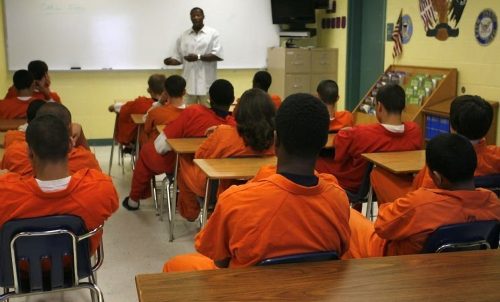
Via Wikimedia Commons

This work is licensed under a Creative Commons Attribution-ShareAlike 4.0 International License.
By Kaveh Nasseri
SAN FRANCISCO, CA – The San Francisco Financial Justice Project published a report this month on the AFTER Program (Aims to Foster Transformation & Ensure Restitution), which was launched in Jan. 2022 as an alternative to the existing system of juvenile restitution, and is now being lauded as a success.
According to the Financial Justice Project, the program “aims to set both the crime survivor and the young person who caused the harm on a stronger and more economically secure path.”
In the new report, the Financial Justice Project discussed the shortcomings of the current restitution system to explain why a new approach is needed, noting survivors of crimes rarely receive adequate compensation under the current system, adding, “In San Francisco, even after five years since restitution has been assessed, over 90 percent goes unpaid. When restitution is paid, crime survivors tend to receive it months or sometimes years after the incident occurred.”
The Financial Justice Project also stated the families of young people charged with crimes lack the finances needed to pay restitution, and that the impact of this unpaid restitution is a barrier to future financial stability.
With the AFTER Program, however, the Financial Justice Project claimed crime survivors are paid restitution through a fund from the District Attorney’s Office, while young people charged with crimes receive help from community-based organizations.
“Through the AFTER program, crime survivors are financially compensated faster from a fund established at the District Attorney’s Office. They receive payment in a matter of months, rather than waiting years or never receiving any restitution,” wrote the Financial Justice Project.
The young people who would otherwise be paying restitution are assigned with completing community service, finding job opportunities for stable employment, and attending conferences on restorative justice, according to the Financial Justice Project.
By creating a fund for restitution and taking steps to rehabilitate young people, the Financial Justice Project claimed AFTER can be a successful alternative to the current system, noting AFTER is more effective than traditional methods at promoting safety, financially compensating survivors of crimes, and holding young people accountable while keeping them out of unpayable debt.
“Through AFTER, persons harmed and young people are held and supported by the community—an often missing piece—within justice reform. AFTER has utilized the community and key partnerships to make everyone whole after a crime in ways the traditional justice system could not do on its own,” said Hillary Buren, director of youth programs at Huckleberry Community Assessment and Resource Center.
The Financial Justice Project also thanked the San Francisco District Attorney’s Office and Public Defender’s Office, the Bar Association of San Francisco, the Juvenile Justice Division of the Superior Court and Huckleberry Youth Programs, describing the AFTER program as a “truly collaborative effort” within San Francisco.
situs toto
jacktoto
jacktoto
situstoto
https://www.slot.pn-kuningan.go.id/
link slot
toto slot
slot gacor
